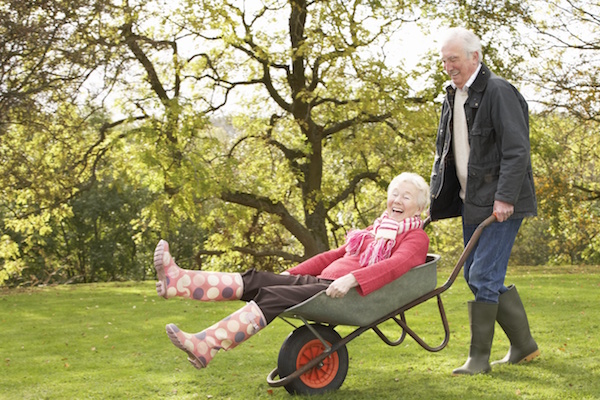
MONDAY, Nov. 9 (HealthDay News) — The self-reported health of the newly retired improves so much that most feel eight years younger, a new European study suggests.
This happy news was true of most everyone except a small minority — only 2 percent — who had experienced “ideal” conditions in their working life, anyway.
“The results really say three things: That work puts an extra burden on the health of older workers, that the effects of this extra burden are largely relieved by retirement and, finally, that both the extra burden and the relief are larger when working conditions are poor,” said Hugo Westerlund, lead author of a study published online Nov. 9 in The Lancet. “This indicates that there is a need to provide opportunities for older workers to decrease the demands in their work out of concern for their health and well-being.”
But of course, added Westerlund, who is head of epidemiology at the Stress Research Institute at Stockholm University in Sweden, “not all older workers suffer from poor perceived health. Many are indeed eminently healthy and fit for work. But sooner or later, everyone has to slow down because of old age catching up.”
Last week, the same group of researchers reported that workers slept better after retirement than before. “Sleep improves at retirement, which suggests that sleeping could be a mediator between work and perception of poor health,” Westerlund said.
This study looked at what the same 15,000 French workers, most of them men, had to say about their own health up to seven years pre-retirement and up to seven years post-retirement.
As participants got closer to retirement age, their perception of their own health declined, but went up again during the first year of retirement.
Those who reported being in poorer health declined from 19.2 percent in the year prior to retirement to 14.3 percent by the end of the first year after retiring. According to the researchers, that means post-retirement levels of poor health fell to levels last seen eight years previously.
The changes were seen in both men and women, across different occupations, and lasted through the first seven years of not punching the clock.
Workers who felt worse before retirement and had lower working conditions reported greater improvements as soon as they retired, the team found.
“Those who had low job satisfaction — a lot of burden for little satisfaction — those were the ones complaining of their health,” said Dr. Gary Kennedy, director of geriatric psychiatry at Montefiore Medical Center in New York City. “People with more authority or better education, a better sense of control over what they were doing and less demand were much less likely to complain,” he added.
“That’s not really surprising,” he said. “An old study of English civil-service workers in Britain found that those who felt they had a lot of responsibility but little control over their workplace were more likely to develop heart disease,” he added. “You can work hard but if you feel like you’re not at the mercy of a job, you still have the illusion of control. That’s an important illusion to maintain.”
A major question is whether these European findings apply to conditions in the United States.
“It’s a little bit difficult to apply directly to our workforce but … we can draw some conclusions about keeping a strong and healthy workforce through the life span,” said Angie Hochhalter, assistant professor of internal medicine at Texas A&M Health Science Center College of Medicine and research scientist in geriatrics at Scott & White in Temple, Texas.
“We know that we need strong health care but also mental services because, in [the study], those people with depression really saw a dramatic change after retirement,” she explained.
“In addition to strong systems, there’s also some degree of personal responsibility for trying to keep ourselves healthy — managing stress from work and from home, healthy eating and physical activity, and staying involved with social support,” Hochhalter added.
Workers in both the United States and Europe are likely to be affected similarly by poor working conditions, Westerlund added.
“It may well be that for many U.S. workers, retirement means a substantial increase in financial stress, which could counteract the positive effects of the removal of work stress at retirement, resulting in no improvement, or even a worsening, of perceived health,” he added. “Additionally, as I understand it, a substantial number of Americans have to take up a new, and often less-qualified and more stressful job, after formal retirement to make ends meet. For them, it is difficult to imagine a positive effect [of retirement] on health.”
More information
Learn more about healthy aging at the U.S. Centers for Disease Control and Prevention.

